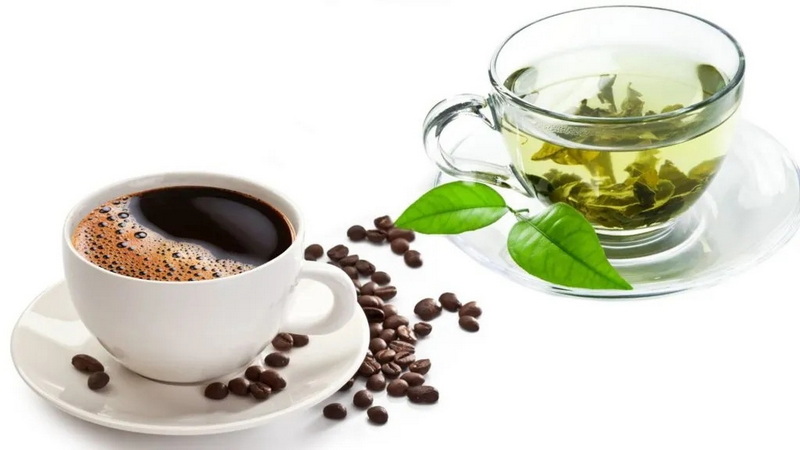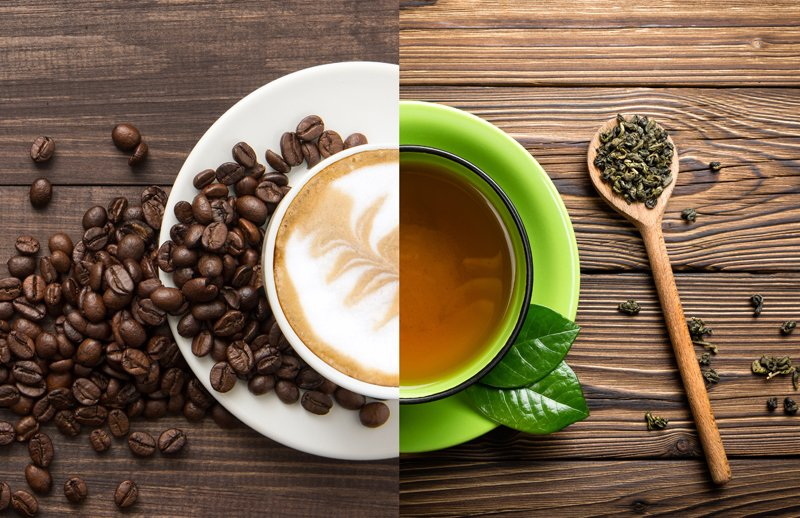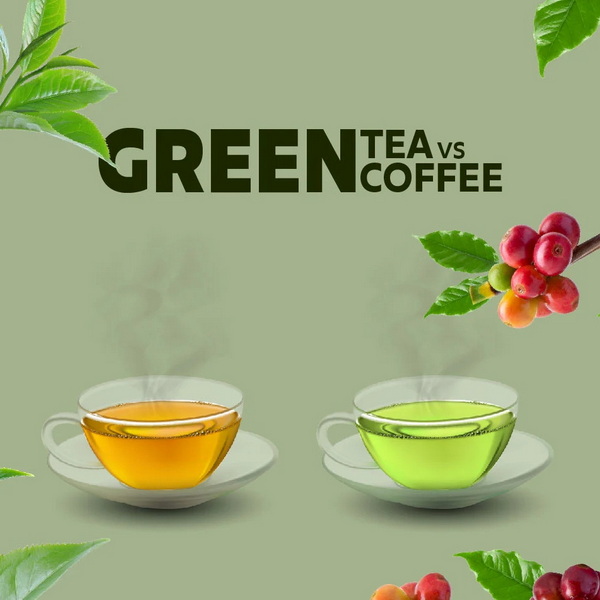Content Menu
● Understanding Green Tea Extract
>> Caffeine Content in Green Tea
● Caffeine in Green Tea Extract
>> Calculating Caffeine in 100 mg of Green Tea Extract
● Factors Influencing Caffeine Content
● Health Benefits Associated with Caffeine in Green Tea Extract
● Potential Side Effects
● Comparing Green Tea Extract with Other Sources of Caffeine
● The Role of Catechins
>> Types of Catechins
● Recommended Dosage
>> Consulting Healthcare Professionals
● Conclusion
● FAQ
>> 1. What is the average amount of caffeine in green tea extract?
>> 2. Can I take green tea extract if I am sensitive to caffeine?
>> 3. How does green tea extract compare to coffee regarding caffeine?
>> 4. Are there any health risks associated with high doses of green tea extract?
>> 5. How should I store green tea extract supplements?
● Citations:
Green tea extract (GTE) has gained popularity as a dietary supplement due to its potential health benefits, including weight loss, antioxidant properties, and improved cognitive function. One of the common questions surrounding green tea extract is its caffeine content, particularly how much caffeine is present in a 100 mg dose.

Understanding Green Tea Extract
Green tea extract is derived from the leaves of the Camellia sinensis plant, which is the same plant used to produce green tea. The extraction process concentrates the beneficial compounds found in the leaves, including catechins (notably epigallocatechin gallate or EGCG) and caffeine.
Caffeine Content in Green Tea
Typically, an 8-ounce cup of brewed green tea contains between 30 to 50 mg of caffeine, depending on various factors such as brewing time and temperature. However, when it comes to green tea extract, the caffeine content can vary significantly based on the formulation and brand.
Caffeine in Green Tea Extract
The caffeine content in green tea extract can range widely:
- Low Caffeine: Some supplements may contain as little as 2-50 mg of caffeine per serving.
- Moderate Caffeine: Many products contain around 30-50 mg of caffeine per serving, which is comparable to a cup of brewed green tea.
- High Caffeine: Certain formulations can exceed 200 mg of caffeine per serving.
Calculating Caffeine in 100 mg of Green Tea Extract
To determine how much caffeine is in a specific dose of green tea extract, it's essential to understand the concentration of caffeine in that particular product. For example:
- If a product states that it contains 40% caffeine by weight, then in 100 mg of that extract, there would be approximately 40 mg of caffeine.
- Conversely, if another product contains only 10% caffeine by weight, then a 100 mg dose would yield about 10 mg of caffeine.
Factors Influencing Caffeine Content
Several factors influence the amount of caffeine found in green tea extract:
- Type of Green Tea: Different varieties of green tea leaves have varying levels of caffeine. For instance, younger leaves generally contain more caffeine than older leaves.
- Processing Method: The method used to process and extract the compounds from the leaves can affect the final concentration of both catechins and caffeine.
- Brand Variability: Different brands may use different formulations and extraction methods, leading to significant variations in caffeine content across products.

Health Benefits Associated with Caffeine in Green Tea Extract
Caffeine itself is known for its stimulant properties and can enhance alertness and cognitive function. When combined with catechins from green tea, it may also provide additional benefits:
- Weight Loss: Studies have shown that both caffeine and catechins can aid in weight management by increasing metabolic rate and fat oxidation.
- Antioxidant Effects: The combination of catechins and caffeine may enhance antioxidant activity, which helps combat oxidative stress in the body.
- Improved Athletic Performance: Caffeine is well-known for its ability to enhance physical performance. Research indicates that it may improve endurance by mobilizing fatty acids from fat tissues and making them available for energy use during exercise.
Potential Side Effects
While moderate consumption of caffeine is generally considered safe for most adults (up to 400 mg per day), excessive intake can lead to side effects such as:
- Anxiety
- Insomnia
- Heart palpitations
- Jitters or restlessness
Individuals sensitive to caffeine should monitor their intake carefully when using green tea extract supplements.
Comparing Green Tea Extract with Other Sources of Caffeine
To better understand where green tea extract stands in terms of caffeine content compared to other sources, here's a comparison:
| Source | Average Caffeine Content |
| Brewed Coffee (8 oz) | 95 - 200 mg |
| Brewed Black Tea (8 oz) | 40 - 70 mg |
| Brewed Green Tea (8 oz) | 30 - 50 mg |
| Green Tea Extract (100 mg) | Varies (10 - 200 mg) |
This table illustrates that while green tea extract can provide a moderate amount of caffeine, it typically contains less than coffee but can be comparable to black tea depending on the formulation.
The Role of Catechins
In addition to caffeine, green tea extract is rich in catechins. These natural antioxidants are believed to contribute significantly to the health benefits associated with green tea.
Types of Catechins
The primary catechin found in green tea is EGCG, which has been extensively studied for its health-promoting properties. Other catechins include:
- Epicatechin (EC)
- Epicatechin Gallate (ECG)
- Gallocatechin Gallate (GCG)
Each type has unique properties that may support various aspects of health, including cardiovascular health and metabolic function.
Recommended Dosage
When considering supplementation with green tea extract, it's essential to follow recommended dosages. Most studies suggest a daily intake ranging from 250 mg to 500 mg for general health benefits. However, individual needs may vary based on factors such as age, weight, and overall health status.
Consulting Healthcare Professionals
Before starting any new supplement regimen, it's advisable to consult with a healthcare professional. They can help assess your individual needs and determine an appropriate dosage based on your health goals and any existing medical conditions.
Conclusion
In summary, the amount of caffeine in a 100 mg dose of green tea extract can vary significantly based on the product's formulation. Generally, you can expect anywhere from 10 to 40 mg of caffeine depending on the concentration specified by the manufacturer. As with any supplement, it's essential to read labels carefully and consult with a healthcare professional if you have concerns about your caffeine intake.

FAQ
1. What is the average amount of caffeine in green tea extract?
The average amount ranges from 30 to 50 mg per serving but can vary widely depending on the brand and formulation.
2. Can I take green tea extract if I am sensitive to caffeine?
Yes, but you should choose products with lower caffeine content or consider decaffeinated options.
3. How does green tea extract compare to coffee regarding caffeine?
An average cup of coffee contains about 95 to 200 mg of caffeine per cup, significantly higher than most green tea extracts.
4. Are there any health risks associated with high doses of green tea extract?
Yes, excessive consumption can lead to liver damage and other side effects due to high levels of catechins and caffeine.
5. How should I store green tea extract supplements?
Store them in a cool, dry place away from direct sunlight to maintain their potency.
Citations:
[1] https://www.livestrong.com/article/186702-how-much-caffeine-is-in-green-tea-extract/
[2] https://www.healthline.com/nutrition/10-benefits-of-green-tea-extract
[3] https://www.truecitrus.com/blogs/tc/clean-caffeine-in-green-tea-vs-coffee
[4] https://www.reddit.com/r/chemistry/comments/3gt1zo/how_much_caffeine_in_green_tea_extract/
[5] https://www.elo.health/articles/green-tea-extract-supplements/
[6] https://www.zhounutrition.com/blogs/the-greatness-files/green-tea-extract-q-a
[7] https://health.clevelandclinic.org/green-tea-extract-a-better-way-to-boost-energy-or-not
[8] http://www.greenskybio.com/blog5/best-answers-to-7-key-questions-about-green-tea-extract.html
[9] https://www.caffeineinformer.com/caffeine-content/green-tea-extract
[10] https://examine.com/supplements/green-tea-extract/
[11] https://www.webmd.com/vitamins/ai/ingredientmono-960/green-tea
[12] https://www.medicalnewstoday.com/articles/269538
[13] https://www.canada.ca/en/health-canada/services/food-nutrition/public-involvement-partnerships/notice-modification-list-permitted-supplemental-ingredients-permit-use-green-tea-extract-supplemental-ingredient-foods/document.html
[14] https://www.medicalnewstoday.com/articles/269538
[15] https://pubmed.ncbi.nlm.nih.gov/16506807/
[16] https://www.healthline.com/nutrition/caffeine-in-green-tea
[17] https://www.elo.health/articles/green-tea-extract-supplements/
[18] https://pubmed.ncbi.nlm.nih.gov/26065095/
[19] https://mindnutrition.com/green-tea-extract-powder
[20] https://www.webmd.com/vitamins/ai/ingredientmono-960/green-tea
[21] https://www.sugimotousa.com/blog/green-tea-vs-coffee-everything-you-need-to-know
[22] https://www.youtube.com/watch?v=CkdqsIhHEhM
[23] https://pmc.ncbi.nlm.nih.gov/articles/PMC7098939/
[24] https://www.youtube.com/watch?v=Q8gBjZ5e3Bs
[25] https://pmc.ncbi.nlm.nih.gov/articles/PMC4307170/
[26] https://cytomatrix.ca/products/green-tea-extract-90-v-caps/
[27] https://www.youtube.com/watch?v=RIbff5iD0GQ
[28] https://www.youtube.com/watch?v=my7FIaS1mGQ
[29] https://pmc.ncbi.nlm.nih.gov/articles/PMC3649093/
[30] https://www.healthline.com/nutrition/green-tea-and-weight-loss






























